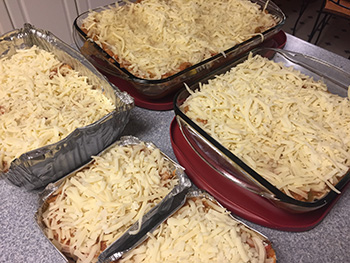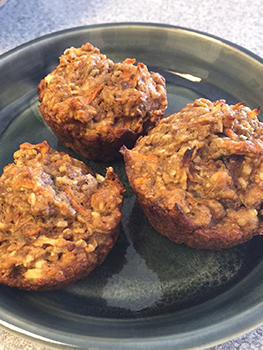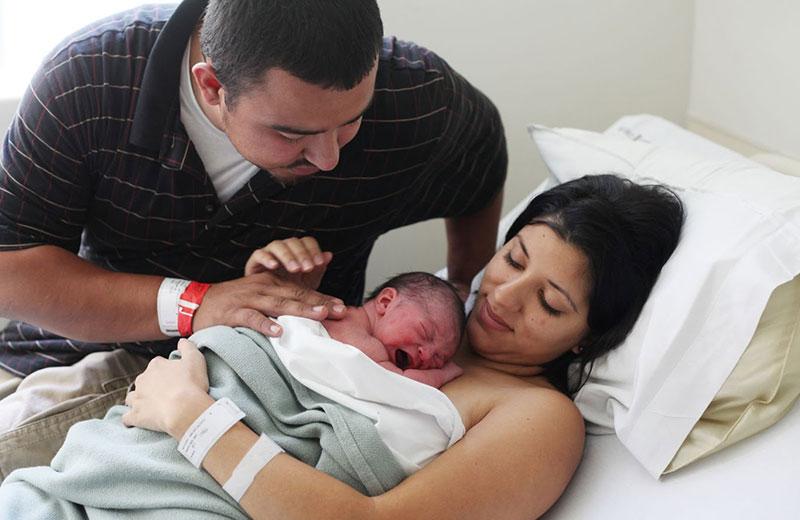This story was co-written by Lise Luppens and Randi Parsons.
There's no doubt about it: babies change our lives. As a society, we often focus on the joy that new babies bring, but we also know that life with a newborn can be hard. With all the care that parents give to their little ones, they might find it difficult to take care of themselves.
Supporting self-care: Building NEST-S
As a friend or relative of a new parent, you might not be able to help with round-the-clock baby care, but you can offer to help them in other ways. You can be there to support their mental, physical, and spiritual health - ultimately, helping new parents prioritize taking care of themselves.
The acronym NEST-S describes aspects of self-care:
N – Nutrition (healthy eating)
E – Exercise (physical activity)
S – Sleep and rest
T – Time for yourself
S – Support
Healthy eating is a big part of self-care. Families always need to eat, and a simple thing you can do to help is bring them food. This might free up some time for them to focus on other things, such as rest, physical activity, and time for themselves. Below, we explore how friends, relatives, and others can help parents to feed themselves in the weeks and months after baby's arrival.
Find out what they really need
Aim to ask what might be most helpful before you start preparing food; ask how you can best help them to feed themselves. Some parents are dealing with food allergy or intolerance, have specific food preferences, or don’t have much freezer space. In these cases, the gift of food can still be a great choice. Instead of making freezer meals, you could offer to:
- Pick up groceries for them
- Order their favourite take-out meal
- Give them a gift certificate to a local grocery store
Also, before you drop off food or other gifts, make a plan with the family. Avoid showing up unannounced: call or text ahead of time to see what works best for them.
Make the meals, ready to go!

At a time when some new parents might feel making a meal is daunting, receiving ready-to-cook or eat meals can be a huge help. If you’re thinking about offering someone a meal, here are a few ideas to consider:
- Prepare a meal that could be eaten right away, or frozen for later.
- Prepare and/or freeze ingredients for a future meal, such as one to be made in a slow cooker or pressure cooker.
- Choose flexible, comforting, and filling recipes, like chili, curry, stew, casseroles, and chowder.
One-handed snacks

Snacks can be nutritious and, can sometimes feel more do-able than sit-down meals for a new parent. You can help by providing them with pre-made snacks, ingredients, or ideas. "Grab-and-go" snacks, those that can be eaten with one hand, are convenient for fueling up while breastfeeding or holding baby. For parents, this can make caring for themselves with food just a little bit easier.
Here are some ideas:
- Dried fish, or boiled eggs (peeled and ready to eat)
- Dried fruit, nuts, and cheese slices
- Fruit slices with yogurt dip
- Muffins with milk
- Rolled up tortilla with refried beans and grated cheese
- Raw veggies, crackers, and hummus
- Smoothie
- Toast with peanut butter and banana
Offering this type of support to a family with a new baby can really make a difference. As a trusted friend or relative, your support of their self-care is a gift.
Curious to learn more about healthy eating and self-care in the postpartum period?
- Learn more about folic acid for new moms.
- Does breastfeeding require a special diet? Read on: Nutrition and breastfeeding: Are we sending the right message?
- Nutrition is one part of self-care. Another is physical activity. Learn more: Self-care for new moms: physical activity can help














Comments